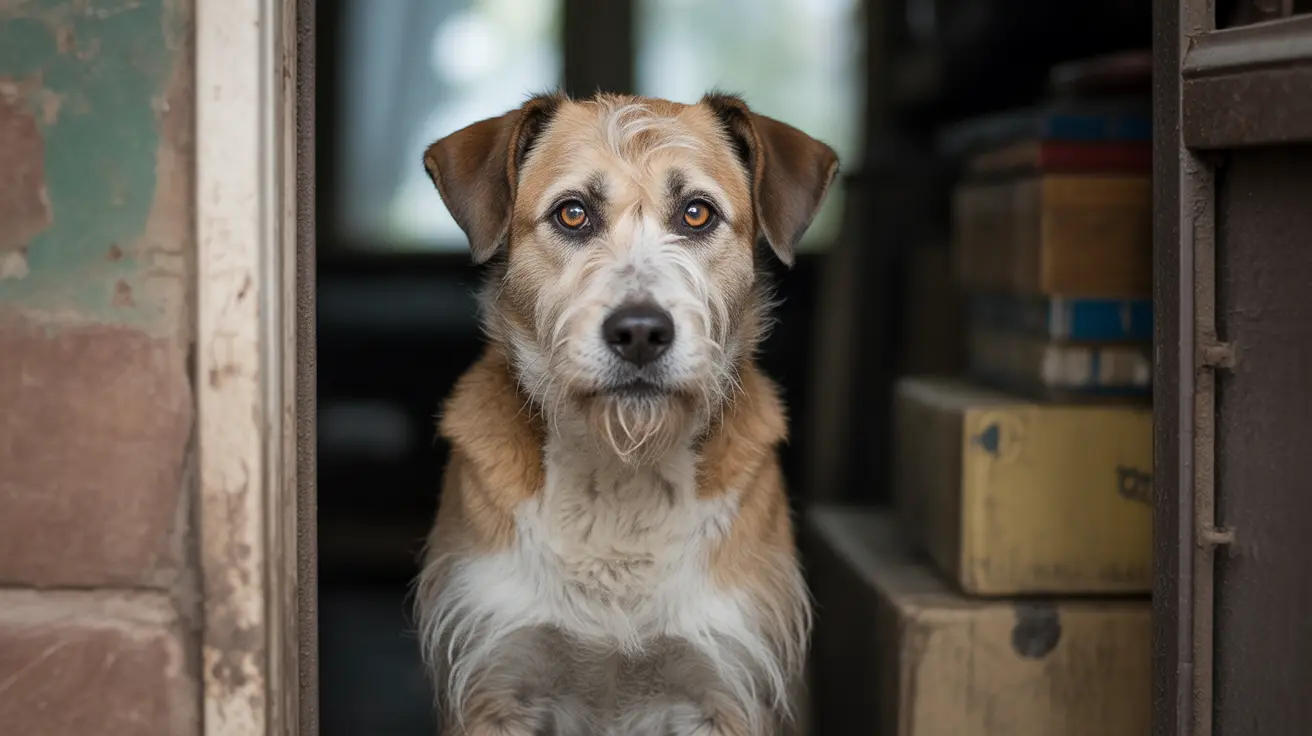The Reality of Substandard Housing Pets Face
Poor housing conditions create multiple hazards for companion animals. Overcrowded spaces, inadequate ventilation, structural damage, and unsanitary conditions can quickly deteriorate into environments that compromise pet health and safety. Animals living in such conditions may face exposure to toxins, lack of proper shelter, inadequate access to clean water and food, and increased stress from chaotic environments.
When families experience housing instability, pets often become unintended victims. Limited financial resources may force difficult choices between human necessities and proper pet care. Additionally, the stress of unstable housing situations can impact a family's ability to maintain consistent care routines for their animals.
Recognizing Animal Cruelty Signs in Poor Housing Situations
Several indicators may suggest animals are suffering in substandard housing conditions. Physical signs include visible injuries, malnutrition, untreated medical conditions, and poor hygiene. Behavioral changes such as excessive fear, aggression, or withdrawal can also signal distress. Environmental factors like accumulation of waste, lack of proper shelter, overcrowding, and exposure to hazardous materials or toxins are additional red flags.
Pet owners facing housing challenges should prioritize basic animal needs even in difficult circumstances. This includes ensuring access to clean water, adequate nutrition, basic veterinary care when possible, and safe spaces away from environmental hazards.
Housing Crisis North Carolina Impact on Pet Families
North Carolina, like many states, faces ongoing housing affordability challenges that particularly impact low-income families with pets. Many rental properties restrict pet ownership, forcing families to choose between housing stability and keeping their beloved companions. This dynamic can push pet-owning families into substandard housing situations where they may struggle to maintain proper care standards.
The interconnected nature of housing instability and animal welfare creates complex challenges requiring comprehensive solutions. When families lack stable, adequate housing, pets inevitably suffer the consequences through compromised living conditions and reduced access to proper care.
Legal Action and Animal Cruelty Reporting NC
North Carolina takes animal cruelty seriously, with laws that allow for both criminal charges and civil interventions. Cases involving both child abuse and animal cruelty, like the Nash County incident, often receive enhanced legal scrutiny due to documented connections between family violence and animal abuse.
Concerned citizens who observe potential animal cruelty should contact local animal control authorities, law enforcement, or animal welfare organizations. Early reporting can prevent situations from deteriorating and help connect families with necessary resources before legal intervention becomes necessary.
Pet Owner Resources NC for Housing Support
Several organizations throughout North Carolina provide assistance to pet owners facing housing challenges. Local animal shelters often maintain lists of pet-friendly housing options and may offer temporary fostering services during housing transitions. Some nonprofits provide emergency assistance for pet care expenses, helping families maintain their animals while addressing housing stability.
Pet owners experiencing housing difficulties should reach out to local social services, housing authorities, and animal welfare organizations for guidance and support. Many communities have resources specifically designed to help keep families and pets together during challenging times.
Frequently Asked Questions
- What are the signs of animal cruelty in a home with poor housing conditions?
Key indicators include animals showing signs of malnutrition, untreated injuries or illness, poor hygiene, behavioral changes like excessive fear, and environmental hazards such as waste accumulation, lack of shelter, or exposure to toxins. Animals may also display stress-related behaviors in chaotic or overcrowded living situations.
- How does substandard housing affect pets and their owners in North Carolina?
Poor housing conditions create health and safety risks for pets through exposure to environmental hazards, inadequate shelter, and overcrowding. Pet-owning families may face additional challenges finding affordable, pet-friendly housing, potentially forcing them into substandard situations where maintaining proper animal care becomes difficult.
- What should I do if I suspect animal cruelty due to unsafe or overcrowded living conditions?
Contact local animal control authorities, law enforcement, or animal welfare organizations immediately. Document your observations if safe to do so, but avoid direct confrontation. Many communities have anonymous reporting options for suspected animal cruelty cases.
Protecting Pets Through Community Awareness
The Nash County case serves as a stark reminder that animal welfare and family stability are deeply interconnected. By recognizing warning signs, supporting available resources, and advocating for comprehensive solutions that address both housing needs and animal welfare, communities can better protect vulnerable pets and families. When we strengthen support systems for families in crisis, we create safer environments for all family members—both human and animal.






